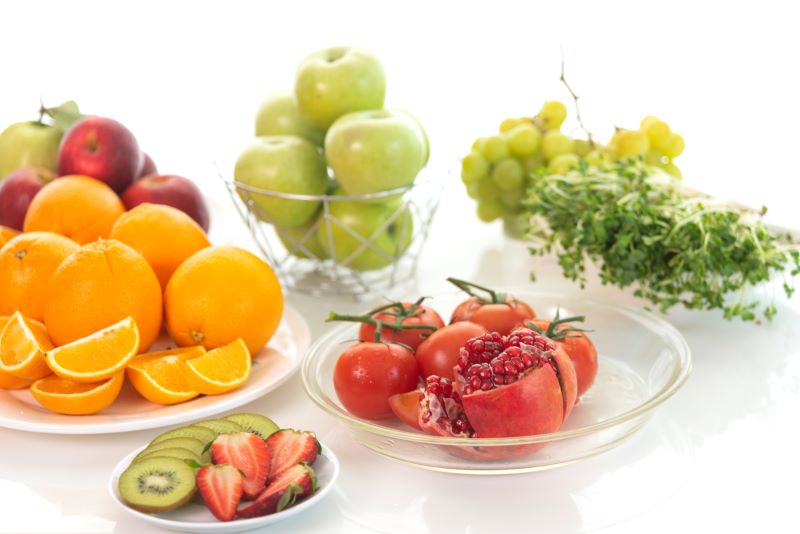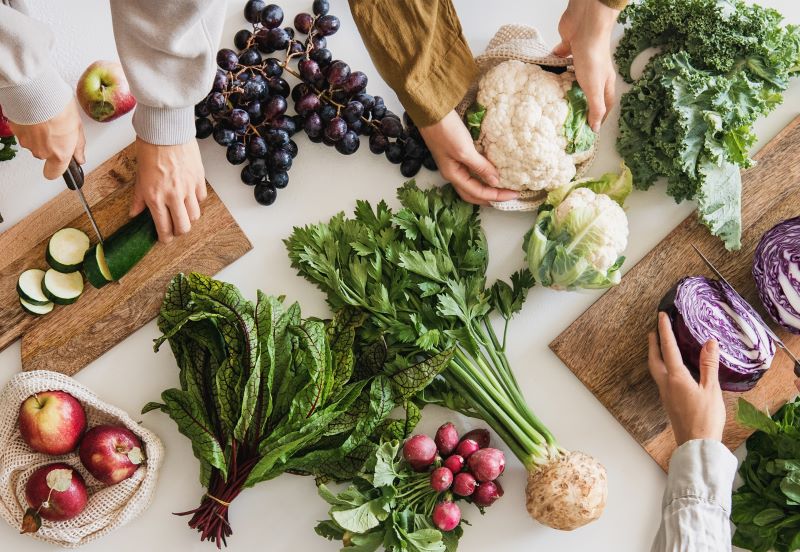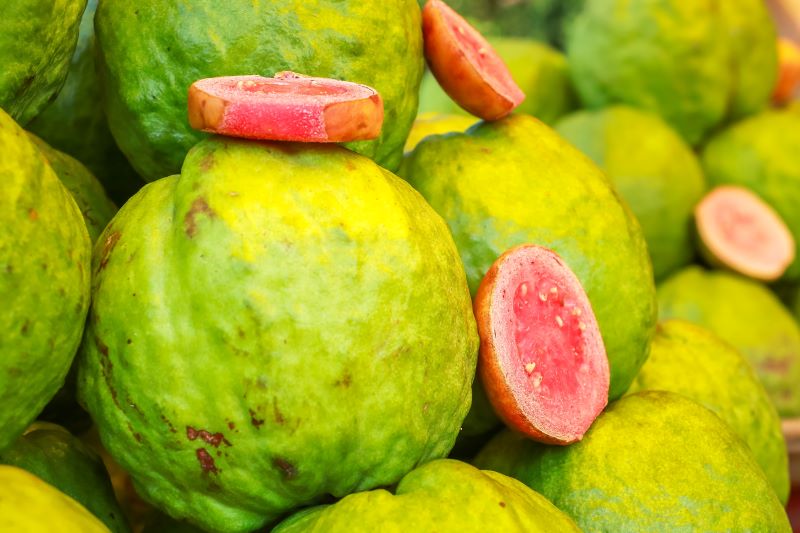34 Best Foods for COPD for Faster Recovery

COPD (chronic obstructive pulmonary disease) must be treated as a whole, and nutrition plays a big part in the recovery process. This article will discuss the best foods for COPD, which may include nutrient-dense choices that promote lung health, boost immunity, and help with speedy recovery.
These foods for chronic obstructive pulmonary disease have proven helpful in many instances, whether relieving shortness of breath or increasing energy levels. They aid in easier breathing and better recovery from any respiratory system failure-related illness.

Table of Contents

What is COPD (Chronic Obstructive Pulmonary Disease)?
COPD, otherwise known as chronic obstructive pulmonary disease, is a progressive lung illness characterised by airflow blockages that make it hard to breathe. Some common signs are coughing, wheezing and shortness of breath. It is often caused by long-term exposure to irritants such as tobacco and smoke.
COPD includes conditions like chronic bronchitis and emphysema, both of which can have a severe impact on daily life. Many treatments, such as medications, are available to manage symptoms and improve overall well-being. It’s important to diagnose early so lifestyle changes can be made accordingly and this condition can be managed effectively.
34 Best Foods for COPD
For those with COPD (Chronic Obstructive Pulmonary Disease), diet is important in supporting lung health and overall well-being. A balanced diet that includes all essential nutrients will help reduce symptoms and improve quality of life.
Foods rich in protein should also be incorporated into meals, especially for people suffering from COPD. This element supports respiratory muscles and reduces airway inflammation. Studies have shown that taking enough protein may enhance the immune response while minimising exacerbations among individuals diagnosed with COPD.
List of Protein-Rich Vegetables for COPD

Having enough protein in your diet is important, especially if you have chronic obstructive pulmonary disease (COPD). This helps keep muscles strong and overall health good. Here are some options for vegetables that contain lots of proteins:
SNo. |
Vegetables | Description | Protein Content (Per 100 grams) |
| 1 | Kale | Kale provides calcium, magnesium, and vitamins A, C, and K, which are essential for bone health. It can also help prevent osteoporosis, a major concern for COPD patients. | 2.9 g |
| 2 | Bok Choy | Bok choy is a green cruciferous vegetable that contains many antioxidants, such as calcium and vitamins A, C, and K, which are important for our immune system to work properly. | 1.5 g |
| 3 | Collard Greens | Collard greens are leafy vegetables rich in calcium and other substances like vitamins A, C and K. They are known for their anti-inflammatory properties, which can help relieve respiratory symptoms in individuals with COPD. | 2.6 g |
| 4 | Brussels Sprouts | Brussels sprouts have similar features regarding nutritional value, including high amounts of proteins and fibres required mainly for muscle function and digestion enhancement. | 3.4 g |
| 5 | Spinach | Spinach stands out due to its dense nutrient content, comprising proteins, minerals, and vitamins necessary for good health. This is especially true for conditions such as COPD, where protein intake becomes crucial. | 2.9 g |
| 6 | Broccoli | Broccoli is an adaptable vegetable full of fibre, protein and vital nutrients. They can relieve inflammation associated with COPD and support muscle activity during digestion. | 2.8 g |
| 7 | Peas | Peas are a good source of protein and fibre, supporting muscle function and digestion in COPD patients. They also contain vitamins and minerals important for overall health and well-being. | 5.4 g |
| 8 | Asparagus | Asparagus is low in calories but rich in protein, fibre, and essential nutrients like vitamins A, C, and K. Its protein content supports muscle repair and immune function in COPD patients. | 2.2 g |
| 9 | Cauliflower | Cauliflower is a cruciferous vegetable rich in protein, fibre and antioxidants. Its protein content supports muscle strength, while its antioxidants help reduce inflammation in COPD patients. | 1.9 g |
List of Protein-Rich Fruits for COPD

When living with chronic obstructive pulmonary disease, your body must get all the necessary nutrients. Protein-rich fruits and juices can help provide these essential vitamins while supporting muscle strength.
SNo. |
Fruit | Description | Protein Content (per 100g) |
| 10 | Avocado | It is rich in healthy fats and contains all essential amino acids, supporting muscle strength and repair. | 2 g |
| 11 | Guava | High in vitamin C, antioxidants, and fibre, aiding immune function and reducing inflammation. | 2.6 g |
| 12 | Kiwi | It is packed with vitamins C, and K, and antioxidants, promoting lung health and reducing oxidative stress. | 1.1 g |
| 13 | Coconut | Provides medium-chain triglycerides (MCTs) for energy and contains lauric acid, with potential antimicrobial properties. | 3.3 g |
| 14 | Banana | High in potassium and easily digestible, providing energy and supporting muscle function. | 1.3 g |
| 15 | Orange | Rich in vitamin C and antioxidants help reduce inflammation and support immune function. | 1.0 g |
List of Dairy Products and Nuts for COPD
Muscle strength maintenance is vital for individuals with chronic obstructive pulmonary disease (COPD) because protein helps build stronger muscles. Dairy products and nuts provide excellent dietary sources of this nutrient type.
SNo. |
Dairy Products and Nuts | Description | Protein Content (Per 100 grams) |
| 16 | Greek Yoghurt | High in protein and probiotics, supporting digestive health and providing essential amino acids for muscle repair. | 10 g |
| 17 | Cottage Cheese | Contains casein protein, which is slowly digested and provides sustained energy and muscle support. | 11 g |
| 18 | Almonds | Rich in protein, healthy fats, and antioxidants, supporting heart health and providing sustained energy. | 21 g |
| 19 | Walnuts | High in protein and omega-3 fatty acids, which have anti-inflammatory properties and support brain health. | 15 g |
| 20 | Pistachios | Protein-rich nuts with antioxidants and potassium support heart health and provide sustained energy. | 20 g |
| 21 | Brazil Nuts | Good source of protein and selenium, which supports immune function and may reduce inflammation. | 14 g |
| 22 | Cashews | Provides protein, healthy fats, and minerals such as magnesium and zinc, supporting overall health. | 18 g |
List of Protein-Rich Vegetarian Foods for COPD

Vegetarian foods containing high levels of proteins are a must-have for patients suffering from COPD who wish to maintain their muscle strength and general well-being at optimum levels.
SNo. |
Food | Description | Protein Content (per 100 g) |
| 23 | Lentils | High in protein, fibre, and iron, supporting muscle strength and providing sustained energy. | 9 g |
| 24 | Chickpeas (Garbanzo Beans) | Rich in protein, fibre, and essential nutrients like folate and magnesium, supporting heart health and providing energy. | 8.9 g |
| 25 | Tofu | Versatile plant-based protein source, rich in amino acids, calcium, and iron, supporting muscle function and bone health. | 8 g |
| 26 | Edamame | Young soybeans are packed with protein, fibre, and antioxidants, supporting heart health and providing essential nutrients. | 11 g |
| 27 | Quinoa | Complete protein source containing all essential amino acids, high in fibre and minerals, supporting overall health. | 4.4 g |
List of Non-Vegetarian Foods for COPD

Non-vegetarian diets offer different types of nutrients which are good for people with COPD. These include proteins necessary to support muscle development and overall patient health improvement.
SNo. |
Food | Description | Protein Content (per 100 g) |
| 28 | Chicken Breast | A lean source of protein, low in fat, and high in essential amino acids, supporting muscle repair and growth. | 31 g |
| 29 | Turkey Breast | Low-fat protein source, rich in essential amino acids, supporting muscle function and immune health. | 29 g |
| 30 | Salmon | Fatty fish are high in protein and omega-3 fatty acids, supporting heart health and reducing inflammation. | 20 g |
| 31 | Tuna | Lean fish are high in protein and omega-3 fatty acids, supporting heart health and sustaining energy. | 30 g |
| 32 | Lean Beef | Protein-rich meat contains essential nutrients like iron and zinc, supporting muscle strength and repair. | 36 g |
| 33 | Eggs | A complete protein source containing all essential amino acids and vitamins and minerals supports overall health. | 13 g |
| 34 | Shrimp | Low-fat seafood high in protein and omega-3 fatty acids supports heart health and sustains energy. | 24 g |
Useful Tools to Track Your Health
Causes of COPD
Prevention and control measures cannot be formulated unless the causes behind an illness or condition are known. The same applies to chronic obstructive pulmonary disease, whose understanding can be enhanced by considering these factors.
- Smoking: It is the main cause of inflammation and damage to the lungs, especially when one has been a long-term smoker.
- Environmental Exposures: Staying close to pollutants and chemicals in the environment for longer can deteriorate the lungs.
- Genetic Factors: People with alpha-1 antitrypsin deficiency are at higher risk if they have a family history of COPD.
- Occupational Hazards: Dusty environments expose workers to fumes and chemicals that may cause them pulmonary damage over an extended period.
- Indoor Air Quality: Ventilation problems combined with biomass fuel use make indoor air dirty, thus worsening respiratory symptoms.
- Respiratory Infections: These infections can destroy lung tissues through severity or recurrence, causing or worsening this condition.
- Age: The risk grows due to old age and changes associated with ageing and exposure over many years.
- Socioeconomic Factors: Poverty, together with scarce healthcare access, heightens risks, thereby affecting smoking levels and prone towards environmental dangers.
Symptoms of COPD
Dealing with COPD means dealing with a wide range of respiratory problems that can completely change how someone lives their life. Here are some symptoms that are easy to recognise and keep a good standard of living:
- Chronic Coughing with Mucus: A persistent cough lasting more than a few weeks or months and often accompanied by phlegm.
- Shortness of Breath: Breathing difficulty occurs commonly among individuals with COPD when they engage in activities that require physical effort.
- Wheezing Sound upon Breathing: Whistling sounds made when you breathe may indicate that your airways have become constricted from inflammation.
- Chest Tightness or Discomfort: Some people feel tightness or pain in their chest region, which tends to worsen during exacerbation.
- Weakness: As an individual progresses through stages 1-4 of COPD, they often complain about feeling tired all the time as well as having low endurance levels.
How to Maintain a Healthy Diet for COPD?
The type of food one eats matters greatly in controlling COPD and its symptoms. Individuals can improve their respiratory health by including foods that contain lots of nutrients while also practising mindful eating habits.
- Balanced Diet: Aim for a balanced diet, which means consuming nutrient-rich foods such as fruits, vegetables, lean meats, and healthy fats.
- Hydration: Keep yourself hydrated. It will help keep your mucus thin so it can be easily cleared from the airways. Drink a lot of fluids, but water is the best choice.
- Frequent Small Meals: Instead of eating large meals once or twice daily, eat small amounts more often during the day.
- High Fibre Foods: Eat more fibre-rich foods like fruits, vegetables, whole grains, breads, cereals, seeds, etc., as they help prevent constipation,
- Omega-3 Fatty Acids: Incorporate omega-3 fatty acids into your diet by eating fish two times weekly. This is extremely beneficial for lung health.
- Limit Sodium Intake: Do not take too much salt, as excessive sodium intake leads to fluid retention and worsening symptoms associated with COPD.
11 Food Items to Avoid When Suffering from COPD
Individuals living with COPD must be aware of potentially harmful items so that they can control themselves over time, ensuring comfort daily while improving current symptoms.
SNo. |
Food Items | Reasons to Avoid |
| 1 | Fried Foods | It can cause indigestion and bloating, making breathing uncomfortable. |
| 2 | Processed Meats (e.g., bacon, sausages) | High in additives and preservatives that may worsen inflammation and lung function. |
| 3 | Dairy Products (e.g., full-fat cheese, cream) | It can increase mucus production and thickness, leading to congestion. |
| 4 | Sugary Snacks and Beverages | Spikes in blood sugar levels can lead to fatigue and worsen breathing difficulties. |
| 5 | Excessive Salt | Contributes to fluid retention, making breathing more difficult. |
| 6 | Carbonated Beverages | It can trigger acid reflux, exacerbating coughing and discomfort. |
| 7 | Spicy Foods | It may cause heartburn or acid reflux, making breathing uncomfortable. |
| 8 | Caffeinated Beverages (in excess) | Acts as a diuretic, increasing the risk of dehydration and thickening mucus. |
| 9 | Foods High in Sulfites (e.g., dried fruits, wine) | Sulfites can trigger asthma symptoms and worsen breathing. |
| 10 | Raw Cruciferous Vegetables (e.g., broccoli, cauliflower) | Difficult to digest and may cause gas and bloating. |
| 11 | High-Fat Desserts (e.g., cakes, pastries) | Heavy on calories and unhealthy fats, contributing to weight gain and decreased energy levels |
Side Effects of an Unhealthy Diet for COPD
When it comes to COPD, an unhealthy diet can make symptoms worse and lead to many other side effects that can damage general health and quality of life. Here are some things to know about the side effects of an unhealthy diet for COPD.
Protect What Matters - Explore Other Insurance Options














